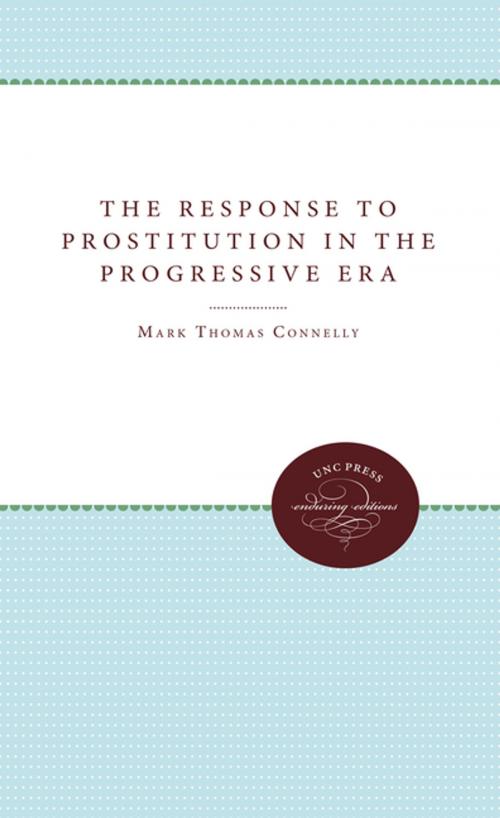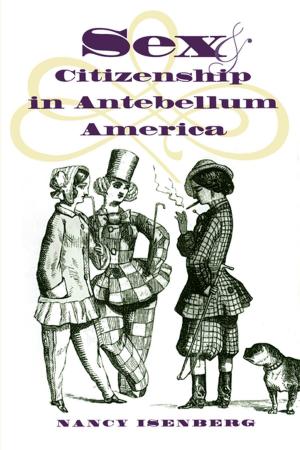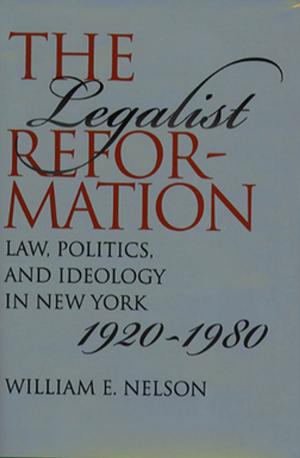| Author: | Mark Thomas Connelly | ISBN: | 9781469650142 |
| Publisher: | The University of North Carolina Press | Publication: | June 15, 2018 |
| Imprint: | The University of North Carolina Press | Language: | English |
| Author: | Mark Thomas Connelly |
| ISBN: | 9781469650142 |
| Publisher: | The University of North Carolina Press |
| Publication: | June 15, 2018 |
| Imprint: | The University of North Carolina Press |
| Language: | English |
During the opening decades of the twentieth century, highly visible red-light districts occupied entire sections of many American cities. Prostitution, still euphemistically referred to as the "social evil," became one of the dominant social issues of the progressive era.
Mark Thomas Connelly places the response to prostitution during those years within its complete social and cultural context. He shows how the antiprostitution movement became a focus for many of the anxieties and social tensions of the period. For many, prostitution seemed ominously linked to the changing status of women, the emergence of permissive sexual morals, uncontrolled immigration, the rampant spread of venereal disease, the decline of rural and small-town values, and urban political and moral corruption. Indeed prostitution became a symbol and code word for a host of unsettling issues and social changes.
Connelly probes the complex relationship between prostitution and the other major social issues of the time. He shows that the response to prostitution was ambiguous. It was forward-looking in that it violated a traditional taboo by openly discussing an important aspect of sexual behavior, but it was also one of the last efforts to rebuttress traditional Victorian beliefs about the proper role and position of women in American society.
Combining the techniques of social, cultural, and intellectual history, Connelly interprets every major aspect of his subject: the relationship between prostitution and the issue of independent, mobile women in the cities; the obsession with "clandestine" prostitution; the belief in a direct relationship between prostitution and immigration; the problem of venereal disease; the urban Vice Commission reports on the extent of commercialized sex in the cities; the "white slavery" issue and the belief that a conspiracy was afoot to debauch native American womanhood; and the concern about prostitution in connection with the last great issue of the progressive years, the mobilization for World War I.
The Response ot Prostitution in the Progressive Era shows that great tension, anxiety, and doubt were important aspects of the profound reorientation in American society that gives the progressive era its distinctiveness as a historical period. Connelly reasserts their historical importance in this study of a major social and cutural episode in American history.
Originally published in 1980.
A UNC Press Enduring Edition -- UNC Press Enduring Editions use the latest in digital technology to make available again books from our distinguished backlist that were previously out of print. These editions are published unaltered from the original, and are presented in affordable paperback formats, bringing readers both historical and cultural value.
During the opening decades of the twentieth century, highly visible red-light districts occupied entire sections of many American cities. Prostitution, still euphemistically referred to as the "social evil," became one of the dominant social issues of the progressive era.
Mark Thomas Connelly places the response to prostitution during those years within its complete social and cultural context. He shows how the antiprostitution movement became a focus for many of the anxieties and social tensions of the period. For many, prostitution seemed ominously linked to the changing status of women, the emergence of permissive sexual morals, uncontrolled immigration, the rampant spread of venereal disease, the decline of rural and small-town values, and urban political and moral corruption. Indeed prostitution became a symbol and code word for a host of unsettling issues and social changes.
Connelly probes the complex relationship between prostitution and the other major social issues of the time. He shows that the response to prostitution was ambiguous. It was forward-looking in that it violated a traditional taboo by openly discussing an important aspect of sexual behavior, but it was also one of the last efforts to rebuttress traditional Victorian beliefs about the proper role and position of women in American society.
Combining the techniques of social, cultural, and intellectual history, Connelly interprets every major aspect of his subject: the relationship between prostitution and the issue of independent, mobile women in the cities; the obsession with "clandestine" prostitution; the belief in a direct relationship between prostitution and immigration; the problem of venereal disease; the urban Vice Commission reports on the extent of commercialized sex in the cities; the "white slavery" issue and the belief that a conspiracy was afoot to debauch native American womanhood; and the concern about prostitution in connection with the last great issue of the progressive years, the mobilization for World War I.
The Response ot Prostitution in the Progressive Era shows that great tension, anxiety, and doubt were important aspects of the profound reorientation in American society that gives the progressive era its distinctiveness as a historical period. Connelly reasserts their historical importance in this study of a major social and cutural episode in American history.
Originally published in 1980.
A UNC Press Enduring Edition -- UNC Press Enduring Editions use the latest in digital technology to make available again books from our distinguished backlist that were previously out of print. These editions are published unaltered from the original, and are presented in affordable paperback formats, bringing readers both historical and cultural value.















